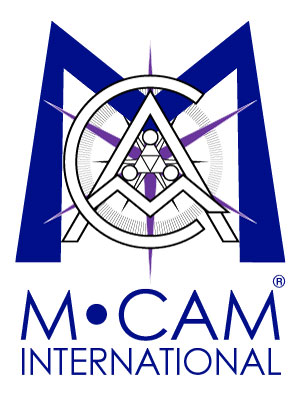The Global Innovation Commons Releases Around The World Featured Item: Colorectal Cancer
Date: Tue, 2011-10-25
October 25, 2011- The Global Innovation Commons released another Around The World Featured Item: Colorectal Cancer.
The Kingdom of Saudi Arabia is facing a difficult problem. Apart from breast and cervical cancer, colorectal cancer is slowly taking its toll towards the younger generation in (the Kingdom of) Saudi Arabia. Being the third most common cancer in the world, this disease is affecting the young population to a greater extent with an advanced stage presentation.*
“Colorectal Cancer (CRC), Colon Cancer and Cancer of the Rectum usually begin as a small polyp. While most colon polyps are benign, some do become cancerous. Colon cancer symptoms may include a change in bowel habits or bleeding, but usually colon cancer strikes without symptoms. That’s why it’s important to get a colon cancer screening test, such as a colonoscopy. If the cancer is found early, the doctor can use surgery, radiation, and/or chemotherapy for effective treatment.**”
In this set of Global Innovation Commons open source technologies, solutions to CRC Surgery, Antibody Compositions, Bioinformatics, Molecular Biology, Drug – Gene Therapy, and Organic Compounds – Peptides are provided.
Click to view the Global Innovation Commons Sets on Colorectal Cancer HERE
Guest Collaborator:
We at the Global Innovation Commons are please to welcome our highly regarded friend, Dr. Mohammad Azhar Aziz, as a guest collaborator on this initiative. Dr. Aziz intends to establish a Center for Familial Colorectal Cancer at the King Abdullah International Medical Research Center National Guard Health Affairs in Riyadh, Kingdom Saudi Arabia. The aim of the Center is to create scientific awareness for hereditary colorectal cancer in the Kingdom of Saudi Arabia. The proposal follows below:
Proposal for the Development of a Center for Familial Colorectal Cancer to create scientific awareness for hereditary colorectal cancer counselling, genetic diagnostics, surveillance and treatment in the Kingdom of Saudi Arabia
Abstract
A better understanding of the molecular basis of hereditary colorectal cancer syndromes yields profound consequences for the diagnosis, surveillance and prophylactic treatment of (pre)malignant neoplastic lesions. Sequence analysis of the underlying genes for these tumours and the detection of disease-causing genetic alterations in a proband enable predictive testing for individuals at risk within an affected family.
The Dresden Center for Familial Colorectal Cancer has been since 1995 active in the study of the molecular basis of several Colorectal Cancer Syndromes. Together with human geneticists and clinicians, we, the members of the Department of Surgical Research, have screened 1316 patients with hereditary tumours and performed molecular diagnostics for various syndromes such as Peutz-Jeghers Syndrome (Gene: STK11), Cowden Syndrome (PTEN), and Familial Adenomatous Polyposis coli (APC, MUTYH). The most frequent cause of familial colorectal cancer remains HNPCC or Lynch Syndrome caused by mutations of Mismatch Repair (MMR) Genes MSH2, MLH1, MSH6 andPMS2. We have identified germline mutations in 224 families and have performed predictive diagnostics in 296 relatives of probands. A HNPCC specific surveillance is highly recommended for probands who are carriers of MMR-deficient tumors or mutation carriers and their relatives. Our prospective data on the efficacy of colonoscopic surveillance in individuals with HNPCC suggest that annual colonoscopic surveillance is recommended for individuals with HNPCC.
In addition, we have contributed five families to worldwide reports of more than 70 families with biallelic mutations in MMR genes. Most of those patients are the offspring of a consanguineous marriage. Tumor spectrum of patients with biallelic germline mutations is different from HNPCC.
The necessity for proper assessment of the risk of familial colorectal cancer has become increasingly evident. In Germany alone, this inherited condition remains largely unrecognized in up to 3,000 colorectal cancer patients per year, while the benefit of surveillance and screening in at risk patients and families has been clearly documented. Further recommendations based on predictive molecular testing such as prophylactic treatment, require critical evidence-based evaluation.
Based on the experience of the Dresden Center for Familial Colorectal Cancer, we intend to establish a Center for Familial Colorectal Cancer at the King Abdullah International Medical Research Center National Guard Health Affairs in Riyadh, Kingdom Saudi Arabia. Our aim is to create scientific awareness for hereditary colorectal cancer in the Kingdom of Saudi Arabia.
Objective
The objective of the proposed mission is to establish a Center for Familial Colorectal Cancer at the King Abdullah International Medical Research Center National Guard Health Affairs in Riyadh, Kingdom of Saudi Arabia. We aim at creating scientific awareness for hereditary colorectal cancer prescreening in the Kingdom of Saudi Arabia.
This mission will be accomplished in close cooperation between the Center for Familial Colorectal Dresden at the University of Dresden, Germany (Prof. Dr. med. Hans K. Schackert, Chief Executiveof the Center for Familial Colorectal Cancer Dresden) and the King Abdullah International Medical Research Center National Guard Health Affairs in Riyadh, Kingdom of Saudi Arabia (Dr. Mohammad Azhar Aziz, PhD, Associate Research Scientist).
The German organization GTZ provides this proposal.
(Source-The Global Innovation Commons)
*http://saudilife.net/health/10169-colorectal-cancer-in-saudi-arabia
**http://www.webmd.com/colorectal-cancer/default.htm


Sorry, the comment form is closed at this time.